Escape to the jail
For most people, prison is a place to escape from. For South Koreans in need of a break from the demands of everyday life, a day in a faux jail is the escape.
"This prison gives me a sense of freedom," said Park Hye-ri, a 28-year-old office worker who paid $90 to spend 24 hours locked up in a mock prison.
In pic: An inmate puts her mobile phone outside a cell of Prison Inside Me, a mock prison facility, in Hongcheon, South Korea.
"This prison gives me a sense of freedom," said Park Hye-ri, a 28-year-old office worker who paid $90 to spend 24 hours locked up in a mock prison.
In pic: An inmate puts her mobile phone outside a cell of Prison Inside Me, a mock prison facility, in Hongcheon, South Korea.
1/7
Reuters
Enter the 'Prison Inside Me'
Since 2013, the 'Prison Inside Me' facility in northeast Hongcheon has hosted more than 2,000 inmates, many of them stressed office workers and students seeking relief from South Korea’s demanding work and academic culture.
"I was too busy," said Park as she sat in a 5-sq-m (54-sq-foot) cell. "I shouldn't be here right now, given the work I need to do. But I decided to pause and look back at myself for a better life."
"I was too busy," said Park as she sat in a 5-sq-m (54-sq-foot) cell. "I shouldn't be here right now, given the work I need to do. But I decided to pause and look back at myself for a better life."
2/7
Reuters
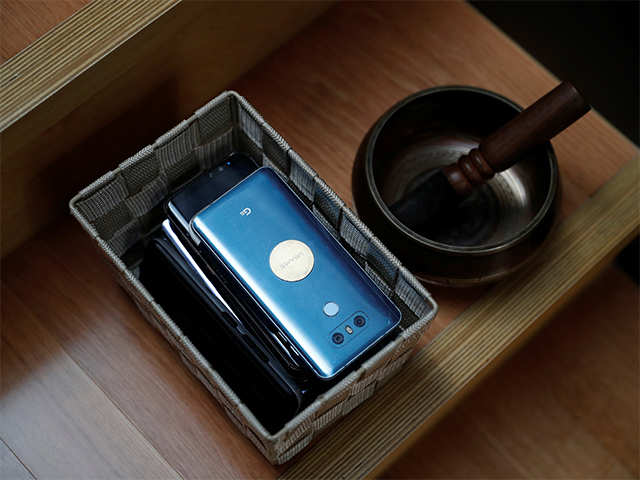
Rules of the prison
Prison rules are strict. No talking with other inmates. No mobile phones or clocks.
Clients get a blue prison uniform, a yoga mat, tea set, a pen and notebook. They sleep on the floor. There is a small toilet inside the room, but no mirror.
The menu includes steamed sweet potato and a banana shake for dinner, and rice porridge for breakfast.
Clients get a blue prison uniform, a yoga mat, tea set, a pen and notebook. They sleep on the floor. There is a small toilet inside the room, but no mirror.
The menu includes steamed sweet potato and a banana shake for dinner, and rice porridge for breakfast.
3/7
Reuters
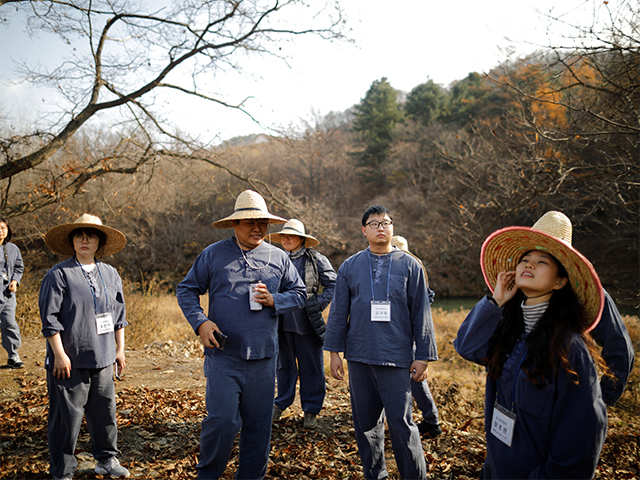
Time out
Co-founder Noh Ji-Hyang said the mock prison was inspired by her husband, a prosecutor who often put in 100-hour work weeks.
"He said he would rather go into solitary confinement for a week to take a rest and feel better," she said. "That was the beginning."
In pic: Participants take a walk before being locked up at Prison Inside Me, a mock prison facility, in Hongcheon, South Korea.
"He said he would rather go into solitary confinement for a week to take a rest and feel better," she said. "That was the beginning."
In pic: Participants take a walk before being locked up at Prison Inside Me, a mock prison facility, in Hongcheon, South Korea.
4/7
Reuters
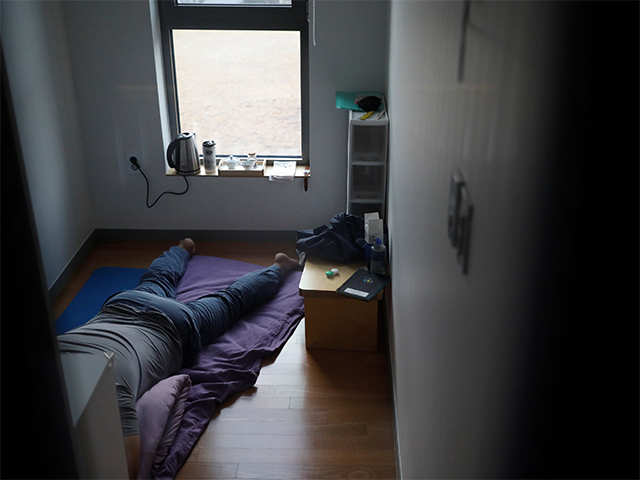
A break from stress and suicide
A downturn in South Korea’s high-tech, export-driven economy has intensified a hyper-competitive school and work environment that experts say adds to a high incidence of stress and suicide.
South Koreans worked 2,024 hours on average in 2017, the third longest after Mexico and Costa Rica, in a survey of 36 member countries in the Organisation for Economic Cooperation and Development (OECD).
South Koreans worked 2,024 hours on average in 2017, the third longest after Mexico and Costa Rica, in a survey of 36 member countries in the Organisation for Economic Cooperation and Development (OECD).
5/7
Reuters
Risky policies
To help people work less and earn more, the government has raised the minimum wage and cut the legal cap on working hours to 52 per week from 68. But the policies could backfire and put at risk more jobs than they create, economists say.
6/7
Reuters
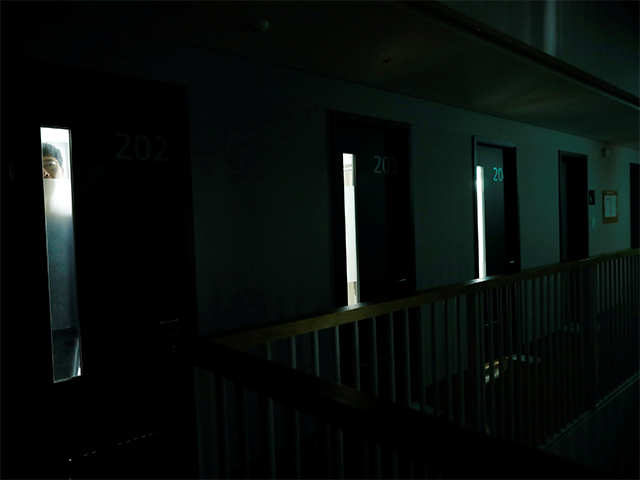
A prison to return to
Noh said some customers are wary of spending 24 or 48 hours in a prison cell, until they try it.
"After a stay in the prison, people say, 'This is not a prison, the real prison is where we return to,'" she said.
"After a stay in the prison, people say, 'This is not a prison, the real prison is where we return to,'" she said.
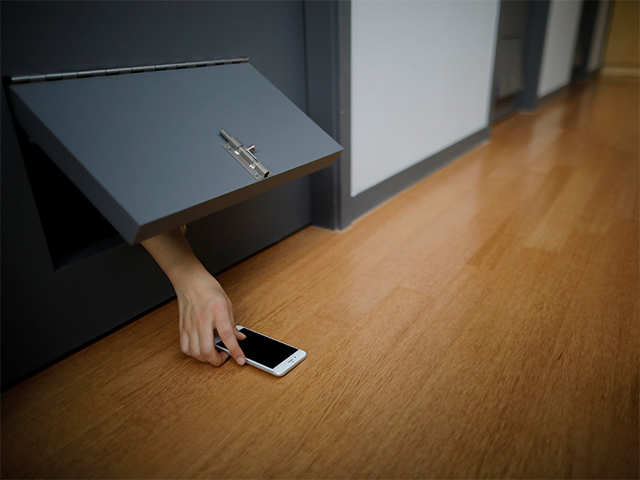
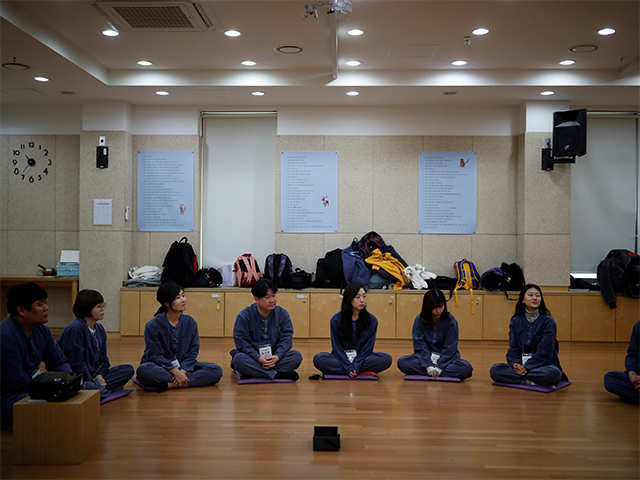
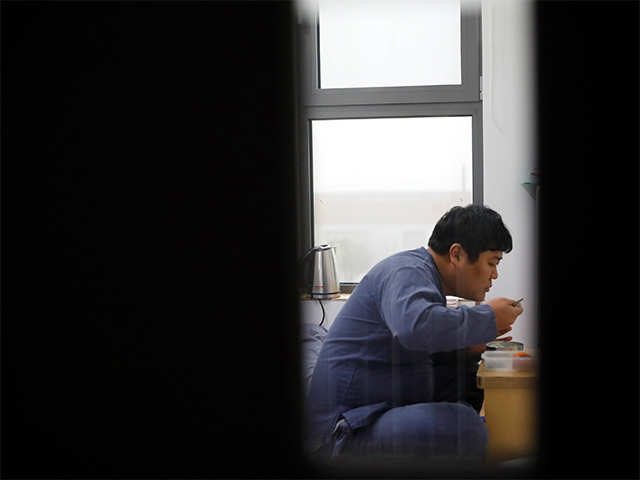
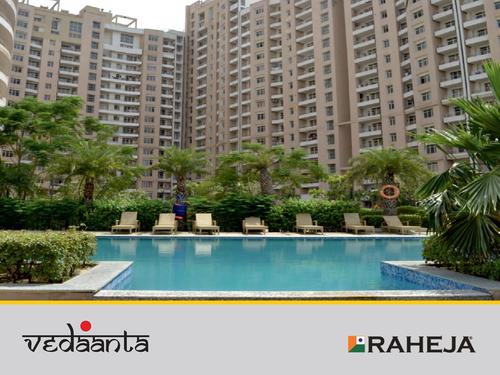
No comments:
Post a Comment